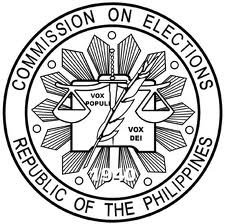
“What we’re hoping is that campaign finance will also lead to more information on the campaigns and will lead to political parties and candidates monitoring each other. Because if we’re going to exceed the limits (for spending), that’s a ground for disqualification…,” said Commissioner Christian Robert Lim, chairperson of the poll body’s ad hoc campaign finance steering committee.
Lim spoke at a seminar workshop organized by the Philippine Center for Investigative Journalism (PCIJ) on the issue of strengthening enforcement and compliance with campaign finance rules for the 2013 midterm elections.
In its June Resolution No. 9746 that provides for the rules and regulations governing electoral contributions and spending, the poll body pushed for the creation of the Campaign Finance Unit (CFU) tasked to receive, compile and analyze reports of candidates, political parties, partylist groups, contributors, election contractors and advertising contracts of media entities.
In his speech, Lim admitted that the new move was still a work in progress, considering the challenges and the work load, but that he hoped that the 2013 elections would make a good start for pinpointing loopholes and would pave the way for better enforcement in time for the 2016 presidential elections, where more money was expected to be spent.
Lim explained that much of the task of the CFU was to monitor campaign finance but that the poll body lacked power resources to handle the job.
He, however, noted that the poll body would ask the help of the Bureau of Internal Revenue (BIR), the Commission on Audit (COA), the Ombudsman, and local election officers in its efforts to avoid “money politics” in next year’s midterm polls.
He said that the poll body was now drafting its rules to tap local election officers for data gathering and enforcement of rules on campaign financing.
Lim added that the poll body would strictly monitor whether state resources were spent to further campaigns, which he said is the worst form of campaign financing.
BIR Commissioner Kim Henares, for her part, noted that the campaign finance reforms, if properly implemented, would make people more responsible in reporting the income generated from election expenditures.
Henares noted that election spending contributed to the increase in the country’s gross domestic product (GDP) growth, as it meant “business to a lot of suppliers and campaign services, thereby generating tax revenues.”
She noted, however, that the enforcement of the new rules could work both ways, as it could also mean that people would spend less for the elections and would not result in growth for the GDP.
She maintained that her department would nonetheless ensure that taxes were properly collected, and would work with the poll body in determining how tax records could be used to pinpoint campaign financing.